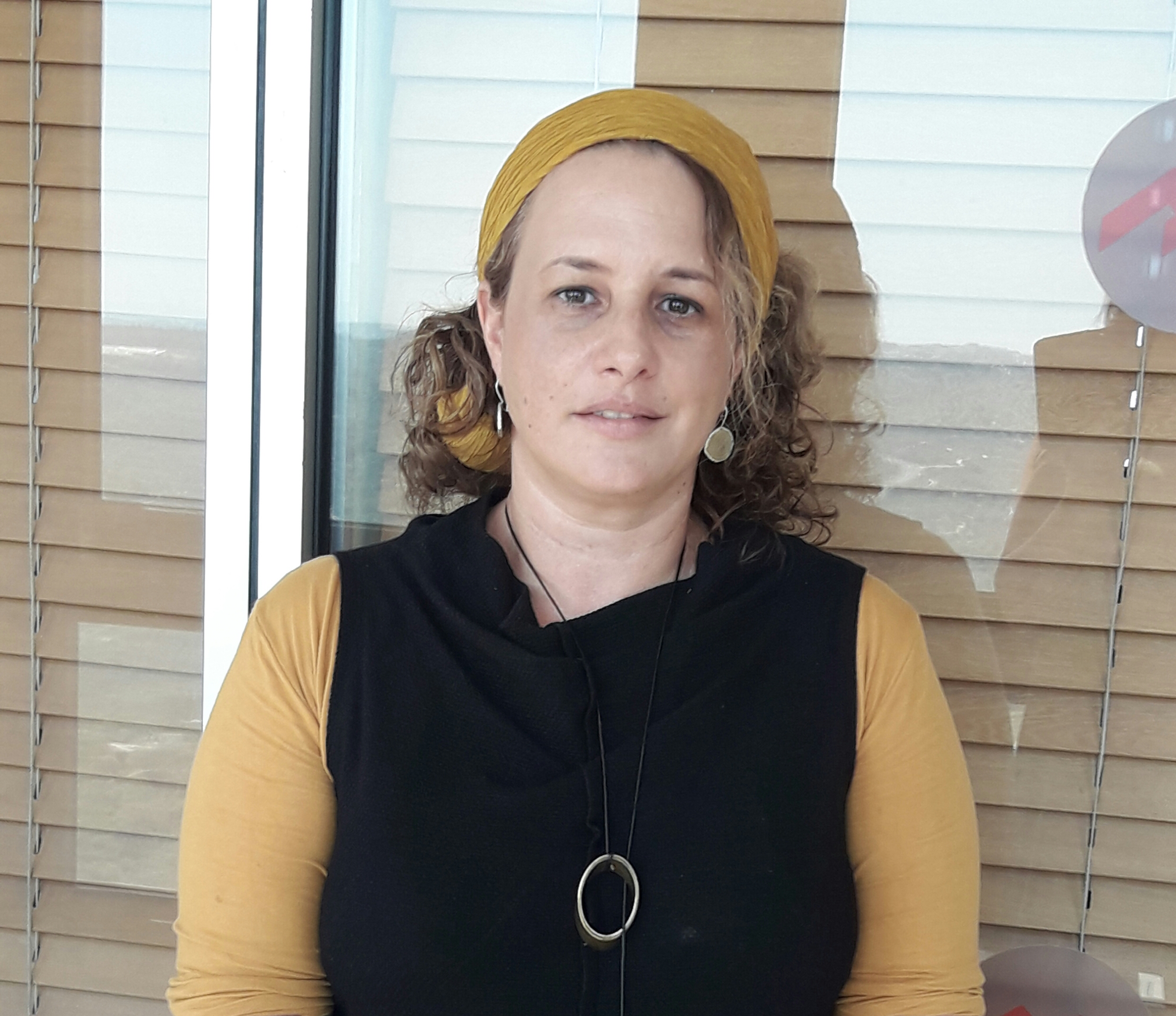








Nouman, Hani
Hani Nouman (University of Haifa) – Welfare and Social Work
Hani Nouman, PhD, is a senior member of staff at the School of Social Work at the University of Haifa. She is a community social worker, certified group facilitator, and lecturer, and has extensive practical experience in the field of community interventions in stress and crisis situations.
Her main area of research is communities and policy change. Her studies include psychosocial assessment of communities coping with stress and crises while examining the involvement of practitioners to strengthen and empower these communities. In her research, Dr. Nouman focuses on assessing the need for policy change, the effectiveness of decision-making processes in professional interventions, and the involvement of practitioners in social policy shaping processes. From this perspective, her research is application-oriented, intended to address social problems in the community, and to advance necessary social change required in emergency situations. Dr. Nouman has published articles in leading international journals and supervises graduate students in these fields.
Alongside her academic activity, Dr. Nouman has been a practitioner in this field for many years. Among other roles, she has been a community social worker in interventions in emergency, stress, and crisis situations, has coordinated community and volunteering in the public welfare services, facilitated groups on the subject, has mentored practitioners, and currently serves as a voluntary consultant on these matters in various communities.
Ostfeld, Avi
Avi Ostfeld (Technion) - Engineering, Technology and Planning
Avi Ostfeld is a Chaired Professor at the Faculty of Civil and Environmental Engineering and Deputy Vice President for Academic Affairs of the Technion – Israel institute of Technology.
Dr. Ostfeld's research contributions and professional activities are in the fields of water resources systems, and in particular in the area of water distribution systems optimization using evolutionary computation: water distribution systems security through optimal monitoring, water quality event detection, and booster chlorination station allocations, optimal design and operation of water distribution systems, and integrating water quality and reliability into water distribution systems management and control. He also specializes in critical infrastructure security modeling, water distribution systems security modeling and control.
Paz, Shlomit
Shlomit Paz (University of Haifa) – Environment; Public Health and Emergency Medicine
Prof. Shlomit Paz, head of Department of Geography and Environmental Studies, University of Haifa, is a climatologist and environmental health researcher who investigates the impacts of climate change on the human health and security. Her studies include aspects of monitoring and surveillance of vector/water/food-borne diseases outbreaks, as well as predictions of the geographical spreading of the diseases among human populations, which resulted from the changing climate and environment.
Recently she led a large EU project for the ECDC (European Center for Disease Prevention and Control, Stockholm), on the current and predicted impacts of climate change on vector-borne diseases spreading in Europe, for a better preparedness of the EU countries to severe outbreaks in the near future.
She is a member of the steering committee of the MedECC (Mediterranean Experts on Climate and Environmental Changes), and a contributor to the coming IPCC special report on the impacts of 1.5ºC warming on human and natural systems (health section).
Peled, Dan
Dan Peled (University of Haifa ) – Social Science
Prof. Dan Peled, Department of Economics, Univ. of Haifa. Ph.D.: Univ. of Minnesota, 1980. Fields of Interest: technological innovation, economics of R&D, economic growth, defense economics. Current position: Senior Advisor, Research Authority, University of Haifa. Senior Research Associate, Samuel Neaman Institute (SNI) at the Technion, past founder and director of the program on Economics of National Security, (ENS), and Academic coordinator – Science Technology and the Economy (STE) at SNI.
Interested in emergency and defense resources and responsibility allocations, including the study of external effects and complementarities between jurisdictions, levels of government and individual agents, and designing incentives for implementing the desirable distribution of preventive, detection and emergency treatment efforts.
Perry, Ronen
Ronen Perry (University of Haifa) - Law
Ronen Perry is a Professor of Law and Director of the Aptowitzer Center for Risk, Liability, and Insurance at the University of Haifa. Prof. Perry received his LLB magna cum laude from the Tel Aviv University in 1996, where he studied in the special program for excellent students (admitting 0.5% of undergraduate students). He completed with distinction his LLM studies, as part of the direct doctoral track requirements, then served for three years in the IDF JAG Corps, and received his LLD summa cum laude from the Hebrew University in 2001. Prof. Perry has published a book and sixty articles and book chapters on tort law, contract law, insurance, remedies, jurisprudence, and the legal process, and is also engaged in empirical and experimental legal studies without a prioricommitment to a specific branch of law. He served as the President of the Israeli Private Law Association, and currently serves as member of the European Centre of Tort and Insurance Law, the World Tort Law Society, and the Global Young Academy, and as the Israeli reporter to the European Tort Law Yearbook. Prof. Perry was a visiting researcher at New York University, University of Oxford, Pompeu Fabra University, and the University of Vienna. He is one of the founding editors, and a senior editor of the Journal of Tort Law, an editorial board member of Law and Social Inquiry, and the editor-in-chief of the Haifa Law Review. In 2015, he was awarded the Fattal Prize for excellence in legal research.
Plaut, Pnina
Pnina Plaut (Technion) –Institutional Coordinator Technion, Engineering, Technology and Planning Group head
Pnina Plaut (Associate Prof.) - is the Chair of the Graduate Program in Urban and Regional Planning at the Faculty of Architecture and Town Planning, Technion - IIT. She holds a BSc in Civil Engineering, MSc in Urban and Regional Planning from the Technion, and a PhD in City and Regional Planning from the University of California, Berkeley. Fields of interests: Transportation and Land Use Planning and Policy, Impacts of Infrastructure (Transportation and Telecommunications) on Economic Development, Urban/Regional Structure and the Environment. Special interest in Social Networks, Travel Behaviour and Urban Structure. Prof. Plaut, is the Initiator, Coordinator and Chair of the EU TUD COST Action TU1305 titled: Social Networks and Travel Behaviour. Prof. Plaut is leading a research group at the Center for City and Regional Studies -CCRS devoted to the investigation of “health promoting environments” focusing on the impact of the built environment on health including: “active” transport and active living by design. She recently advised a master's student whose thesis evaluated the urban planning factors that influence evacuation under various tsunami wave conditions using a coastal community case study. She is also supervising a master student whose thesis focuses on incorporating underground civilian shelters in city planning and outline plans. The research is exploring ways for combining civil protection in urban underground space.
Portman, Michelle
Michelle Portman (Technion) - Engineering, Technology and Planning; Environment
Michelle Portman graduated the Technion with a M.Sc. in Urban and Regional Planning (’91), the University of California Berkeley with a B.Sc. in Political Economy of Natural Resources (’84) and the University of Massachusetts with a doctorate in Public Policy (’07). She returned to Israel in 2009 following a two-year postdoctoral fellowship at the Marine Policy Center of Woods Hole Oceanographic Institution. She continued her research as a post-doctorate in the Geography Department at Hebrew University of Jerusalem until joining the Technion.
Michelle’s research in marine and coastal management has focused on conservation and the connection between uses of the land and sea (commercial fishing, marine renewable energy, offshore infrastructure, etc.). She researched governance for coastal development, integrated coastal zone management, natural resource use and environmental justice, decision support tools for planning and the use of GIS for public participation. With regard to emergency preparedness, she researched the potential contribution of urban and regional planning to tsunami preparedness and also the resilience and vulnerability of coastal communities to extreme weather events. She head up the MarCoast Ecosystems Integration Lab in which research is conducted on marine litter, water sensitive design, coastal zone management and marine conservation policy.
Rapaport, Carmit
Carmit Rapaport (University of Haifa) – Social Science
Carmit Rapaport (Ph.D, Technion- Israel Institute of Technology) is the Academic Coordinator of the MA programs in Coping with Emergencies and Fire Studies at the Department of Geography and Environmental Studies at the University of Haifa. Carmit is Also the Director of the Institute for Regulation of Emergency and Disaster. Her research areas include: Disaster management, operational continuity, disaster behavior. She has participated in and received several EU and national funded projects and grants (FP7-BEMOSA, Israeli MOST grants).
Reichman, Amnon
Amnon Reichman (University of Haifa) – Rapid Response Coordinator; Law
Prof. Amnon Reichman is a an Associate Professor of law (tenured 2006) at the faculty of law, University of Haifa and a co-Principal Investigator (PI) of the Minerva Center for the Rule of Law Under Extreme Conditions at the University of Haifa. In 2016 Prof. Reichman served as the President of the Israeli Law and Society Association. He specializes in public law (constitutional law and administrative law), and his areas of expertise include models of regulation, neo-institutionalism, separation of powers, theories of judicial review, human rights, and comparative constitutional and administrative law. He is the founder and chair of the Research Forum on the Rule of Law (faculty of law), and heads the graduate program (LL.M.) that specializes in civil and administrative law. He taught and developed the syllabus for the legal segment of the graduate program in Emergency and Disaster Management (Geography Department). Professor Reichman is the recipient of numerous grants and awards, including the Israeli Science Foundation (ISF). He is a member of the European Group of Public Law, and has taught in several leading institutions, including UC Berkeley (Boalt Hall), Yeshiva University (Cardozo School of Law) and the Center for Judicial Studies (University of Reno, Nevada). He holds an LLB (Cum Laude) from the Hebrew University in Jerusalem (1994), an LL.M. from the University of California at Berkeley (Boalt Hall) (1996) and an S.J.D from the University of Toronto (2000). He conducted his post-graduate studies at the Center for Ethics and the Professions at Harvard University (2001). Prior to his graduate studies, professor Reichman clerked for the Hon. Justice Aharaon Barak at the Supreme Court of Israel (1995).
Reuveny, Eran
Eran Reuveny (Technion) - Engineering, Technology and Planning
Eran Reuveny is an expert in systems engineering, complex project management at the field of Intelligent transportation systems. Eran earned a B.Sc. in Electrical Engineering (Technion) and a M.Sc. in Electrical Engineering (University of Tel Aviv). He acquired his experience in engineering & project management in 23 years of service at the Israeli Air Force. From 2006 to 2012 he served as the CEO of the Israeli Association for intelligent transportation systems (ITS Israel). In the last couple of years, he is involved in research & development of advanced intelligent transportation projects as a researcher at the Transportation Research Institute of the Technion.
Eran is interested in developing an Extreme Events Hybrid Mobility Services Composition Platform. In order to support an online algorithms that can produce and update an evacuation plan in real-time as the Extreme Events rolls in, it is required to develop an online interface between city management systems / IOT systems & the optimization models & Simulation platform. For this purpose, is proposed to develop Extreme Events Hybrid Mobility Services Composition Platform that can capture the impacts of Extreme Events.

